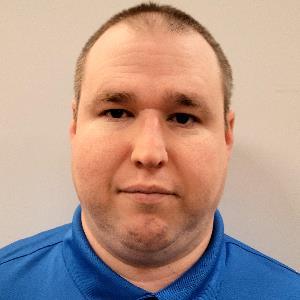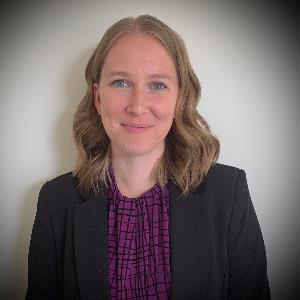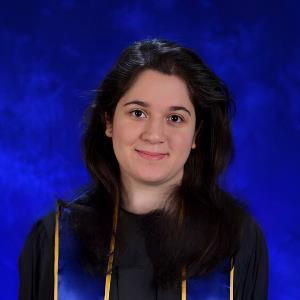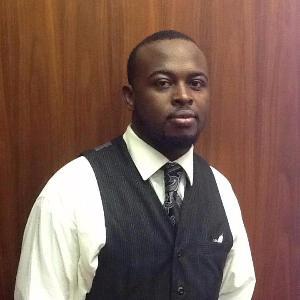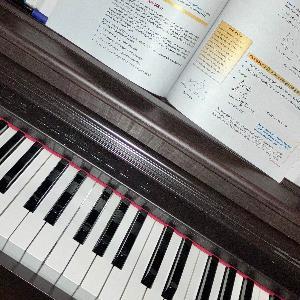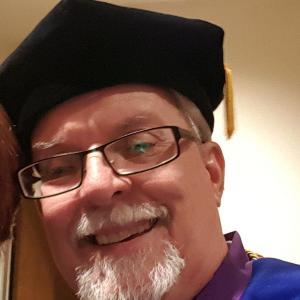- Homework Help
- Find a Tutor
- Pricing
- Subjects
- How It Works
- Pre-Med GPA Booster
- Need a test prep tutor? Call us: 888-231-7737
Online now!
 (1,094)
(1,094)
Biology
Bachelors in Biology/Biological Sciences, General from Universidade Federal de Viçosa
Online now!
 (550)
(550)
Bachelors in Political Science and Government, General from Bowling Green State University-Main Campus Bachelors in Secondary Education and Teaching from Otterbein University Masters in Education, General from Nova Southeastern University
Online now!
 (328)
(328)
Calculus, Calculus BC, Pre-Calculus
Bachelors in Chemical Engineering from Universidad Nacional de Colombia
Online now!
 (206)
(206)
Elementary (3-6) Math, MS Word
Bachelors in Computer Science from Embry-Riddle Aeronautical University-Daytona Beach Masters in Computer Science from University of Maryland-University College Masters in Business Administration and Management, General from University of Phoenix-Online Campus
Online now!
 (186)
(186)
Bachelors in Psychology, General from Argosy University-San Diego Masters in Criminal Justice from University of Nevada-Las Vegas
Online now!
 (92)
(92)
Biology, Midlevel (7-8) Science
Bachelors in Natural Sciences from University of Rhode Island Masters in Environmental Science from Green Mountain College
Online now!
Online now!
 (30)
(30)
Bachelors in Psychology, General from Cameron University Masters in Behavioral Sciences from Cameron University
Online now!
 (2)
(2)
Elementary (3-6) Math, Midlevel (7-8) Math
Bachelors in Management Information Systems, General from Wilmington University Masters in Management Information Systems, General from Wilmington University
Online now!
 (6,040)
(6,040)
Earth Science, Elementary (3-6) Math, Midlevel (7-8) Math, Midlevel (7-8) Science, MS Word
Bachelors in History, General from Saginaw Valley State University Bachelors in Special Education and Teaching, General from Saginaw Valley State University
Online now!
 (5,680)
(5,680)
Calculus, Calculus BC, MS Excel, Physics, Statistics, Trigonometry
Bachelors in Engineering, General from Universidad de Antioquia
Online now!
 (4,277)
(4,277)
Algebra, Algebra 2, Geometry, Physics, Pre-Calculus, Trigonometry
Bachelors in Business Administration and Management, General from University of Toronto
Online now!
 (3,846)
(3,846)
Algebra, Algebra 2, Midlevel (7-8) Math
Bachelors in Mathematics, General from Universidad Nacional de Mar del Plata
Online now!
Online now!
 (2,246)
(2,246)
Physics
Bachelors in Physics, General from Wabash College Masters in Education, General from Embry-Riddle Aeronautical University-Worldwide Masters in Education, General from University of South Florida-Main Campus
Online now!
 (2,038)
(2,038)
Midlevel (7-8) Science
Bachelors in Psychology, General from DePaul University Masters in Clinical Psychology from University of Cincinnati-Main Campus
Online now!
 (1,931)
(1,931)
Calculus, Calculus BC, Pre-Calculus
Bachelors in Physics, General from Universidad del Valle
Online now!
 (1,671)
(1,671)
MS Excel
Bachelors in Criminal Justice from Saint Cloud State University Masters in Criminal Justice from Saint Cloud State University
Online now!
 (1,366)
(1,366)
Calculus, Pre-Calculus
Bachelors in Physics, General from Universidad Nacional de Colombia
Online now!
 (930)
(930)
Calculus, Discrete Mathematics, Economics
Bachelors in Mathematics, General from Rensselaer Polytechnic Institute Bachelors in Economics, General from Rensselaer Polytechnic Institute Masters in Mathematics, General from Rensselaer Polytechnic Institute
Online now!
 (845)
(845)
Algebra, Statistics
Bachelors in Psychology, General from West Virginia University Masters in Statistics, General from West Virginia University
Online now!
Online now!
 (598)
(598)
Bachelors in Biology/Biological Sciences, General from Idaho State University
Online now!
 (590)
(590)
Bachelors in Psychology, General from Westfield State University Masters in Psychology, General from Roger Williams University
Online now!
 (544)
(544)
Accounting, Accounting Intermediate
Bachelors in Accounting from Saginaw Valley State University
Online now!
 (528)
(528)
Elementary (3-6) Math, Midlevel (7-8) Math
Bachelors in Secondary Education and Teaching from East Central University
Online now!
 (497)
(497)
Algebra, Computer Science Java
Systems Engineering Major from Universidad del Norte
Online now!
 (435)
(435)
Elementary (3-6) Math, Midlevel (7-8) Math
Bachelors in Computer Science from Western Governors University
Online now!
 (304)
(304)
Elementary (3-6) Math, MS Excel, Statistics
Bachelors in Civil Engineering, General from Universidad del Norte
Online now!
 (295)
(295)
Accounting, Elementary (3-6) Math
Bachelors in Information Science/Studies from Viterbo University Masters in Business Administration and Management, General from University of Wisconsin-La Crosse Bachelors in Accounting from University of Wisconsin-La Crosse
Online now!
 (259)
(259)
Bachelors in Business Administration and Management, General from Wichita State University Masters in Information Science/Studies from Capella University PHD in Education, General from Capella University
Online now!
 (229)
(229)
Accounting, Accounting Intermediate
Bachelors in Accounting from University of Iowa Bachelors in Finance, General from University of Iowa
Online now!
 (227)
(227)
Earth Science, Midlevel (7-8) Science
Bachelors in Physics, General from Lamar University Masters in Elementary Education and Teaching from Sierra Nevada College
Online now!
 (212)
(212)
Algebra, Elementary (3-6) Math, Midlevel (7-8) Math, Spanish
Bachelors in Electrical and Electronics Engineering from Arizona State University Masters in Electrical and Electronics Engineering from Arizona State University
Online now!
 (205)
(205)
Accounting, Accounting Intermediate, Algebra, Geometry
Bachelors in Information Technology from New York University Masters in Accounting from Florida International University Masters in Business Administration and Management, General from Florida International University
Online now!
 (165)
(165)
Accounting, Accounting Intermediate
Bachelors in Accounting from University of Delaware Masters in Accounting from University of Delaware
Online now!
 (163)
(163)
Anatomy and Physiology, Biology, Elementary (3-6) Math, Midlevel (7-8) Math
Bachelors in Biology/Biological Sciences, General from Universidad de Buenos Aires
Online now!
Online now!
 (142)
(142)
Algebra 2, Physics
Bachelors in Physics, General from Illinois State University PHD in Physics, General from Purdue University-Main Campus Bachelors in Mathematics, General from Illinois State University
Online now!
 (76)
(76)
Computer Science Java, Technology - Computer Fundamentals
Bachelors in Engineering, General from University of Houston
Online now!
 (70)
(70)
Accounting
Bachelors in Elementary Education and Teaching from Indiana University-Bloomington Masters in Accounting from Indiana University-Bloomington
Online now!
 (42)
(42)
Bachelors in Nursing from California State University-Dominguez Hills Masters in Nursing from University of Phoenix-Online Campus
Online now!
 (42)
(42)
Bachelors in Business Administration and Management, General from Clayton State University Masters in Health and Wellness, General from Clayton State University
Online now!
 (7)
(7)
Algebra, Calculus
Bachelors in Mathematics, General from University of California-Los Angeles
Online now!
 (29)
(29)
Midlevel (7-8) Science
Bachelors in Environmental Science from Northern Michigan University Masters in Environmental Science from West Texas A & M University
Online now!
 (7,760)
(7,760)
Chemistry
Bachelors in Chemistry, General from University of Wyoming PHD in Chemistry, General from University of Wyoming
Online now!
Online now!
 (719)
(719)
Elementary (3-6) Math, Midlevel (7-8) Math
Mathematics, General Major from Universidad Industrial de Santander
Online now!
 (375)
(375)
Accounting Intermediate
Bachelors in Accounting from Mississippi State University Masters in Accounting from Mississippi State University
Online now!
 (32)
(32)
Algebra, Computer Science C++, Elementary (3-6) Math, Geometry, Midlevel (7-8) Math
Online now!
 (1)
(1)
Elementary (3-6) Math, Elementary (3-6) Reading
Bachelors in Secondary Education and Teaching from McNeese State University Masters in Education, General from American College of Education
 (1)
(1)
Calculus, Physics
Bachelors in Physics, General from Universidade Federal do Rio Grande Do Norte
 (195)
(195)
Bachelors in Political Science and Government, General from University of Illinois at Urbana-Champaign Masters in International/Global Studies from University of Pittsburgh-Pittsburgh Campus
 (4,943)
(4,943)
Algebra, Algebra 2, Geometry, Pre-Calculus, Trigonometry
Bachelors in Mathematics, General from LeTourneau University
 (4,502)
(4,502)
Essay Writing
Bachelors in Business Administration and Management, General from University of Maryland-University College Masters in Business Administration and Management, General from Troy University
 (3,751)
(3,751)
ELL, English, Essay Writing
Bachelors in English Language and Literature, General from Drury University Masters in Writing, General from Missouri State University-Springfield
 (3,142)
(3,142)
Algebra, Algebra 2, Elementary (3-6) Reading, Midlevel (7-8) Math
Bachelors in Meteorology from Florida State University
 (2,948)
(2,948)
English, Essay Writing, Literature
Bachelors in English Language and Literature, General from Wittenberg University Masters in English Language and Literature, General from Indiana University-Purdue University-Fort Wayne
 (2,897)
(2,897)
Essay Writing
Bachelors in English Language and Literature, General from Ball State University
 (2,482)
(2,482)
English, Essay Writing, Literature
Bachelors in Education, General from Eastern Washington University Masters in English Language and Literature, General from Eastern Washington University PHD in Education, General from Gonzaga University
 (2,274)
(2,274)
Algebra, Algebra 2, Elementary (3-6) Math, Geometry
Bachelors in Engineering, General from University of Pittsburgh-Pittsburgh Campus Masters in Business Administration and Management, General from Baldwin Wallace University
 (2,150)
(2,150)
Essay Writing
Bachelors in English Language and Literature, General from University of Toronto
 (1,940)
(1,940)
Essay Writing, Literature
Bachelors in English Language and Literature, General from SUNY at Binghamton
 (1,665)
(1,665)
Bachelors in Social Sciences, General from Brigham Young University-Idaho
 (1,565)
(1,565)
Accounting, Accounting Intermediate
Bachelors in Accounting from Troy University Masters in Business Administration and Management, General from Auburn University at Montgomery Masters in Accounting from Liberty University
 (1,408)
(1,408)
Essay Writing
Bachelors in English Language and Literature, General from Bowling Green State University-Main Campus Masters in Geology/Earth Science, General from Ball State University
 (1,382)
(1,382)
Computer Science Java
Bachelors in Computer Science from Ohio University-Main Campus
 (1,320)
(1,320)
Algebra, Chemistry, Midlevel (7-8) Math
Bachelors in Chemistry, General from Wayland Baptist University PHD in Chemistry, General from University of Arizona
 (1,173)
(1,173)
Literature
Bachelors in English Language and Literature, General from Southern New Hampshire University
 (1,157)
(1,157)
Essay Writing
Bachelors in Philosophy from Creighton University Masters in Philosophy from University of Wisconsin-Milwaukee
 (1,106)
(1,106)
Essay Writing
Bachelors in English Language and Literature, General from Fordham University Masters in Communication, General from Iona College
 (1,055)
(1,055)
Chemistry, Elementary (3-6) Math, Midlevel (7-8) Math
Bachelors in Chemical Engineering from Universidad Nacional de Córdoba
 (1,017)
(1,017)
Spanish
Bachelors in Sociology from Florida International University Masters in Political Science and Government, General from Florida International University
 (1,013)
(1,013)
Essay Writing
Bachelors in English Language and Literature, General from Winthrop University Masters in English Language and Literature, General from Winthrop University Masters in Library Science, Other from University of South Carolina-Columbia
 (967)
(967)
Bachelors in Education, General from SUNY at Fredonia Masters in English Language and Literature, General from Buffalo State SUNY Masters in Literature, Other from Mercy College
 (950)
(950)
Algebra, Algebra 2, Calculus, Geometry, Midlevel (7-8) Math, Pre-Calculus, Trigonometry
 (935)
(935)
Elementary (3-6) Math, Elementary (3-6) Reading
Bachelors in Elementary Education and Teaching from University of Wyoming Masters in Library Science, Other from North Carolina Central University
 (912)
(912)
English, Essay Writing, Midlevel (7-8) Science
Bachelors in Business Administration and Management, General from Truman State University Masters in Business Administration and Management, General from Webster University
 (905)
(905)
Essay Writing
Bachelors in Sociology from Brescia University College Bachelors in English Language and Literature, General from Western University
 (896)
(896)
Bachelors in Communication, General from The University of Texas at Austin Masters in Journalism from The University of Texas at Austin PHD in Geography from The University of Texas at Austin
 (887)
(887)
Bachelors in English Language and Literature, General from University of Massachusetts Amherst
 (865)
(865)
Biology, Midlevel (7-8) Science
Bachelors in Biology/Biological Sciences, General from Missouri University of Science and Technology Masters in Biology/Biological Sciences, General from Northern Illinois University PHD in Biology/Biological Sciences, General from Northern Illinois University
 (834)
(834)
Accounting
Bachelors in Business Administration and Management, General from Mercer University Masters in Business Administration and Management, General from Georgia State University
 (804)
(804)
Algebra, Algebra 2, Calculus, Pre-Calculus, Trigonometry
Bachelors in Psychology, General from CUNY College of Staten Island
 (791)
(791)
Bachelors in English Language and Literature, General from Missouri Southern State University Masters in Education, General from University of Phoenix-Online Campus PHD in Education, General from Capella University
 (776)
(776)
Essay Writing
Bachelors in Psychology, General from Pittsburg State University Masters in Psychology, General from Pittsburg State University
 (766)
(766)
Essay Writing
Bachelors in Music, General from Southwestern Adventist University Masters in Fine Arts and Art Studies, Other from Southern New Hampshire University
 (763)
(763)
Bachelors in History, General from Central Michigan University Masters in Education, General from Central Michigan University
 (745)
(745)
Elementary (3-6) Reading, ELL, Essay Writing, Spanish
Bachelors in Bible/Biblical Studies from Bob Jones University Masters in Religion/Religious Studies from Bob Jones University
 (719)
(719)
Calculus, Trigonometry
Bachelors in Physics, General from Instituto Politécnico Nacional (IPN)
 (654)
(654)
Chemistry
Bachelors in Chemistry, General from Hofstra University PHD in Chemistry, General from University of Colorado Boulder
 (648)
(648)
Elementary (3-6) Math, Elementary (3-6) Reading, ELL, Midlevel (7-8) Math
Bachelors in Medicine from University of New Mexico-Main Campus Masters in Elementary Education and Teaching from University of New Mexico-Main Campus
 (638)
(638)
Anatomy and Physiology, Elementary (3-6) Math, Midlevel (7-8) Science
Bachelors in Medicine from Universidad Nacional de Rosario
 (636)
(636)
Elementary (3-6) Math, Elementary (3-6) Reading
Bachelors in Political Science and Government, General from United States Military Academy
 (620)
(620)
Elementary (3-6) Reading, ELL, English
Bachelors in English Language and Literature, General from Hartwick College
 (595)
(595)
Algebra, Algebra 2, Biology, Midlevel (7-8) Science, Spanish
Bachelors in Biochemistry from SUNY at Binghamton Masters in Biology/Biological Sciences, General from SUNY at Binghamton
 (574)
(574)
Essay Writing, Spanish
Bachelors in Romance Languages, Literatures, and Linguistics, General from University at Buffalo
 (569)
(569)
Algebra, Spanish
Bachelors in Geology/Earth Science, General from California State Polytechnic University-Pomona Masters in Engineering, General from Texas Tech University
 (564)
(564)
Earth Science, Elementary (3-6) Math, Midlevel (7-8) Science
Bachelors in Environmental Science from Calvin College
 (549)
(549)
Elementary (3-6) Reading, Essay Writing
Bachelors in English Language and Literature, General from Hood College
 (548)
(548)
Elementary (3-6) Math, Elementary (3-6) Reading
Bachelors in Education, General from University of Central Florida
 (544)
(544)
Bachelors in Criminal Justice from Albany State University Masters in Criminal Justice from Albany State University
 (541)
(541)
Anatomy and Physiology, Midlevel (7-8) Science
Bachelors in Biology/Biological Sciences, General from Florida Atlantic University Bachelors in Neuroscience from Florida Atlantic University
 (524)
(524)
Biology
Bachelors in Biology/Biological Sciences, General from Universidade Federal do Rio de Janeiro
 (516)
(516)
Elementary (3-6) Reading, Essay Writing
Bachelors in Sociology from California State University-Bakersfield Masters in Education, General from University of La Verne PHD in Education, General from Capella University
 (511)
(511)
Elementary (3-6) Math, Midlevel (7-8) Math
Bachelors in Engineering, General from Universidad de San Francisco de Quito
 (497)
(497)
Elementary (3-6) Reading, Essay Writing
Bachelors in English Language and Literature, General from Kean University
 (496)
(496)
Essay Writing, Literature
Bachelors in Philosophy from Drury University Masters in Philosophy from University of Mississippi
 (481)
(481)
Algebra, Algebra 2, Geometry, Midlevel (7-8) Math
Bachelors in Mathematics, General from SUNY at Albany Bachelors in Business Administration and Management, General from SUNY at Albany Masters in Education, General from Union College
 (459)
(459)
Algebra, Algebra 2, Calculus, Calculus BC, Discrete Mathematics, Finite Mathematics, Geometry, Midlevel (7-8) Math, Pre-Calculus, Statistics, Trigonometry
 (455)
(455)
Essay Writing
Bachelors in Liberal Arts and Sciences/Liberal Studies from Martin Luther College Masters in Humanities/Humanistic Studies from Minnesota State University-Mankato
 (453)
(453)
Elementary (3-6) Reading
Bachelors in Elementary Education and Teaching from Florida State University Masters from Florida International University Nova Southeastern University
 (447)
(447)
Elementary (3-6) Math, Essay Writing
Bachelors in Economics, General from Wayne State University Masters in Economics, General from Georgia Institute of Technology-Main Campus
 (431)
(431)
Essay Writing
Bachelors in English Language and Literature, General from University of Mary Washington Bachelors in Philosophy from University of Mary Washington
 (424)
(424)
Essay Writing
Bachelors in English Language and Literature, General from Missouri State University-Springfield Masters in English Language and Literature, General from Missouri State University-Springfield
 (422)
(422)
Essay Writing
Bachelors in Liberal Arts and Sciences/Liberal Studies from University of Washington-Seattle Campus Masters in Anthropology from Georgia State University
Recent Problems Solved
-
Kevin S.
 (1,190)This Month Kevin S helped a student answer:Q. S=CRD/12d solve for d.
(1,190)This Month Kevin S helped a student answer:Q. S=CRD/12d solve for d. -
Erin K.
 (352)This Month Erin K helped a student answer:Q. Need helping putting together an outline and writing a compare and contrast essay.
(352)This Month Erin K helped a student answer:Q. Need helping putting together an outline and writing a compare and contrast essay. -
Thomas R.
 (685)This Month Thomas R helped a student answer:Q. How many grams of HCl are there in 60mL of a 9.00 M solution of HCl?
(685)This Month Thomas R helped a student answer:Q. How many grams of HCl are there in 60mL of a 9.00 M solution of HCl? -
Alexandra C.
 (203)This Month Alexandra C helped a student answer:Q. i need help with learning the preterite form
(203)This Month Alexandra C helped a student answer:Q. i need help with learning the preterite form -
Isaac G.
 (42)This Month Isaac G helped a student answer:Q. Factors behind the divergent political paths of England and France in the 17th century?
(42)This Month Isaac G helped a student answer:Q. Factors behind the divergent political paths of England and France in the 17th century? -
Michael K.
 (2,173)This Month Michael K helped a student answer:Q. I really need help with problem x2+3x=x(___)
(2,173)This Month Michael K helped a student answer:Q. I really need help with problem x2+3x=x(___) -
Karisha K.
 (4,166)This Month Karisha K helped a student answer:Q. how do you write precise passages?
(4,166)This Month Karisha K helped a student answer:Q. how do you write precise passages? -
Tony B.
 (146)This Month Tony B helped a student answer:Q. Write an equation showing the reaction with water of HNO3 as a Bronsted-Lowry acid.
(146)This Month Tony B helped a student answer:Q. Write an equation showing the reaction with water of HNO3 as a Bronsted-Lowry acid. -
Selena Q.
 (22)This Month Selena Q helped a student answer:Q. Hola! I hope your night is going well! I need help with prepositions ( a, hacia, and con!
(22)This Month Selena Q helped a student answer:Q. Hola! I hope your night is going well! I need help with prepositions ( a, hacia, and con! -
Randall S.
 (88)This Month Randall S helped a student answer:Q. Can you please explain the difference between Shintoism and Confucianism?
(88)This Month Randall S helped a student answer:Q. Can you please explain the difference between Shintoism and Confucianism?
Want to get into a great college? Your GPA matters!
The Princeton Review now has tutors online across 40 subjects who can help you 24/7.
We GUARANTEE Better Grades.
Try a Free Session

 (1)
(1)










































